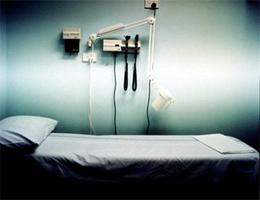Long waiting times for patients criticised

A new report highlights the long waiting times faced by pateints seeking non-emergency treatment in Ireland, and the lack of communication between GPs and consultants. By Bernard O'Rourke.
The Health Information and Equality Authority has criticised the long waiting times experienced by patients between being referred for treatment by their GP and receiving treatment.
HIQA has called the length of time that it takes to access diagnostic services that are directly available to GPs, and the time that patients have to wait for an appointment with consultants, “unacceptable and unsafe”.
According to a HIQA report, released yesterday, the referral system is fundamentally flawed, and it is difficult for adequate communication to take place between GPs and consultants or specialists on the nature of treatment for patients. The system displays “failures in communication, lack of protocols for care handover, differing systems of care provision between providers and lack of clarity about where responsibility and accountability for patient care lies in such situations”.
Waiting lists for diagnostic procedures or assessment by a consultant varies significantly, but “excessive and unsafe waiting times” are frequent occurrences. Waiting times of up to a year for some treatments are not uncommon, and the report even suggests that there is “anecdotal evidence suggesting that waiting times can be up to four of five years in some cases”.
These waiting times are the result of a lack of communication, according to the report. In March 2010 there was a backlog of up to 30,000 “unopened” or “unprocessed” GPs letters in Tallaght hospital, and a further 57,000 unopened x-rays.
The report also explains how in the case of one patient - Kevin Murphy - the results of a vital laboratory test were attached to the back of a referral letter on a Post-It note. In this case, the results were not seen at all by the consultant, and this was reported as one of a number of factors which ultimately contributed to Murphy’s death.
Lack of communication is due to the absence of accurate, complete and comparable information about the patient referral pathway in Ireland. Data is of poor quality and is not standardised. Waiting lists are incomplete and inaccurate and the information is not up-to-date.
The report concludes that Ireland is well below international standard in this regard.
The solution suggested in the report is that a “National Standard for Patient Referral Information” be adopted and implemented. This would involve a set of criteria for patient referrals to be followed by all GPs and all consultants and specialists involved in treatment. In this way “effective communication and the timely dissemination of information from hospitals to both GPs and patients” can be achieved.
HIQA has recommended to the Minister for Health that the measures outlined within the report be adopted immediately.
Image top: cidadevazia.
